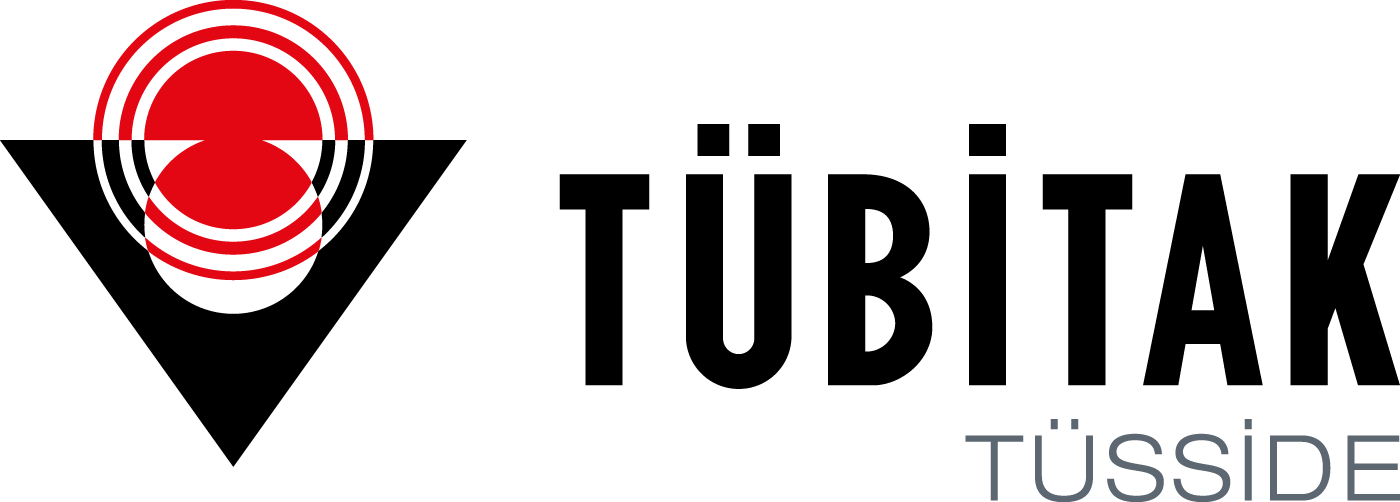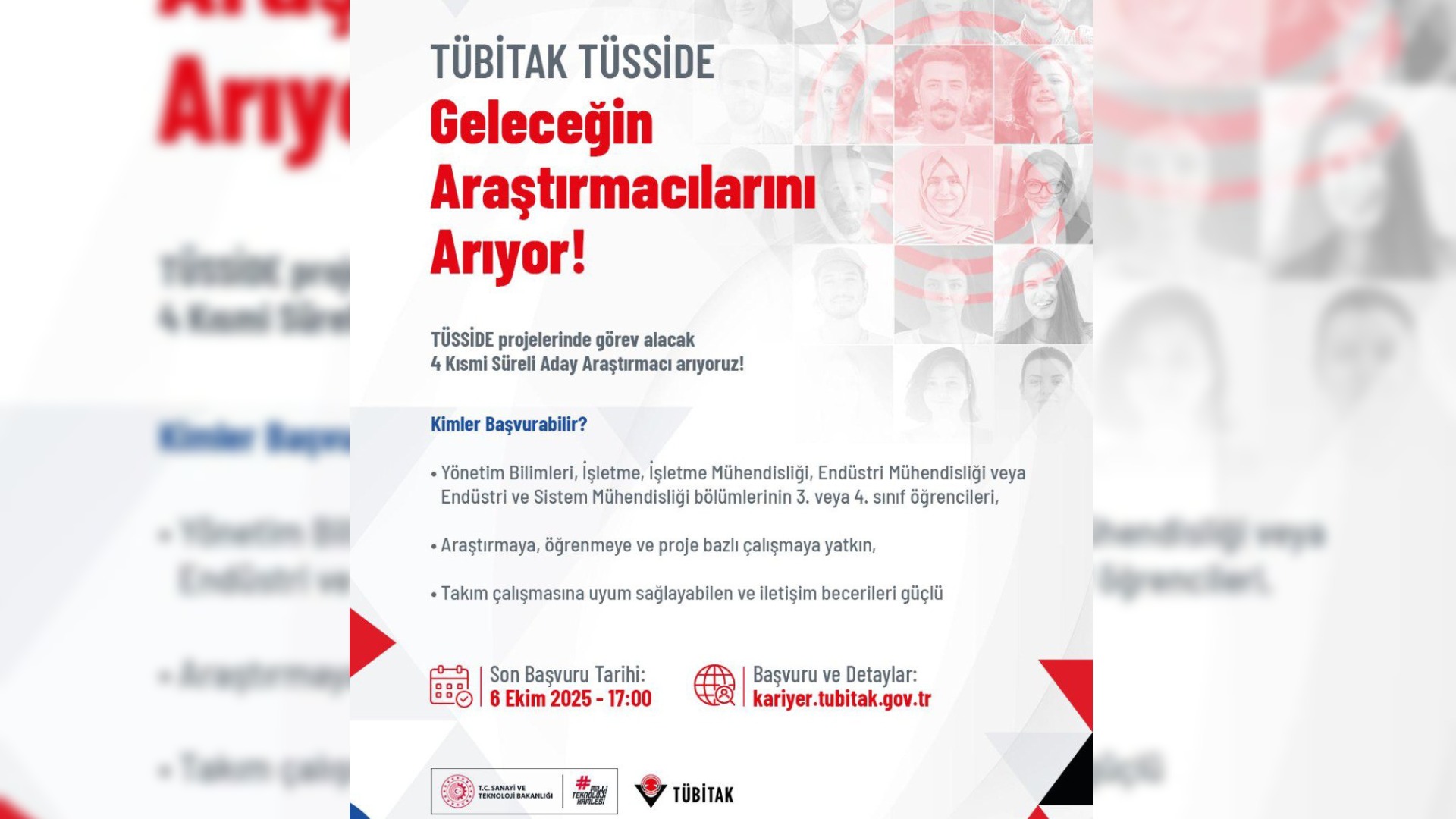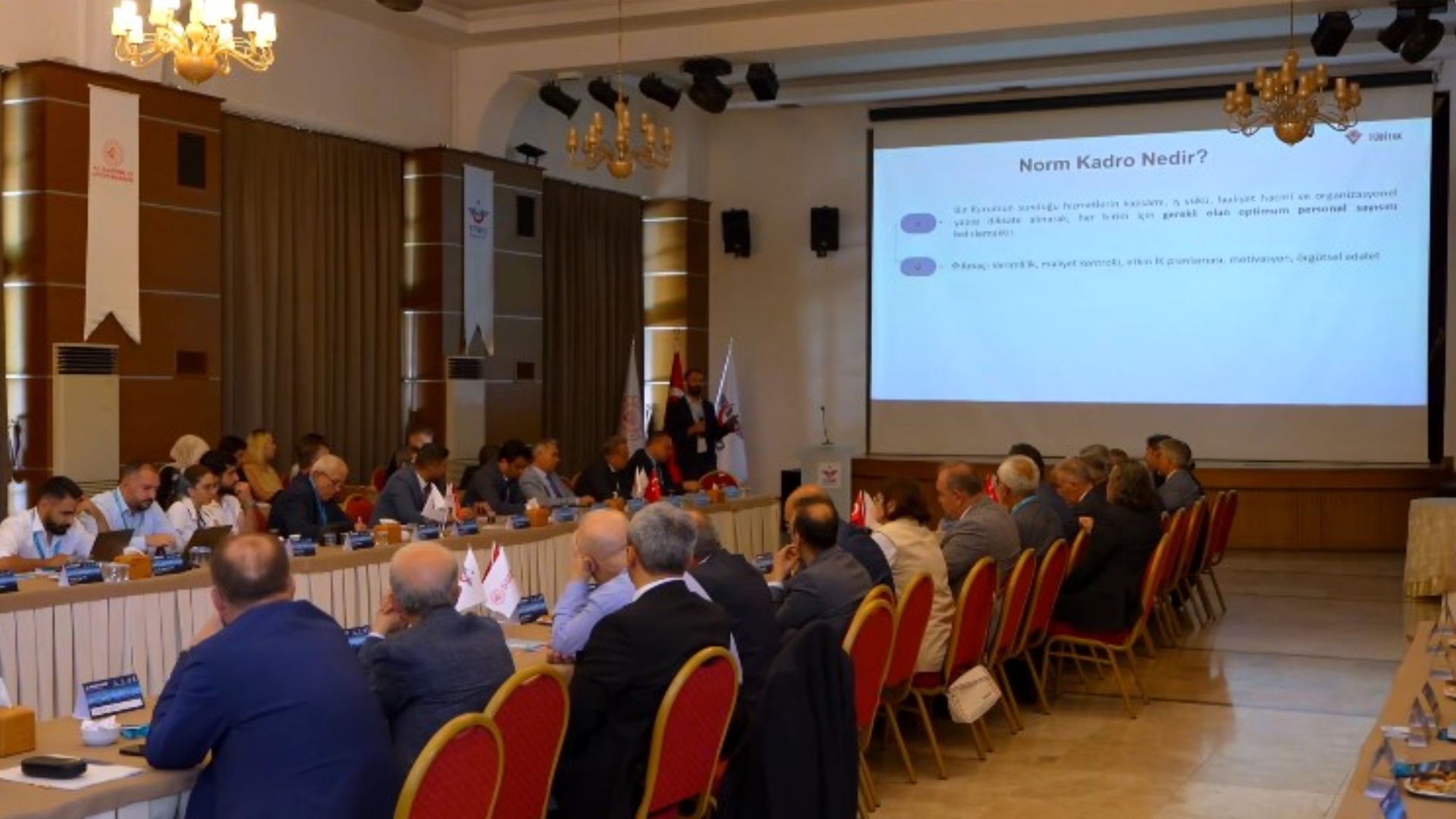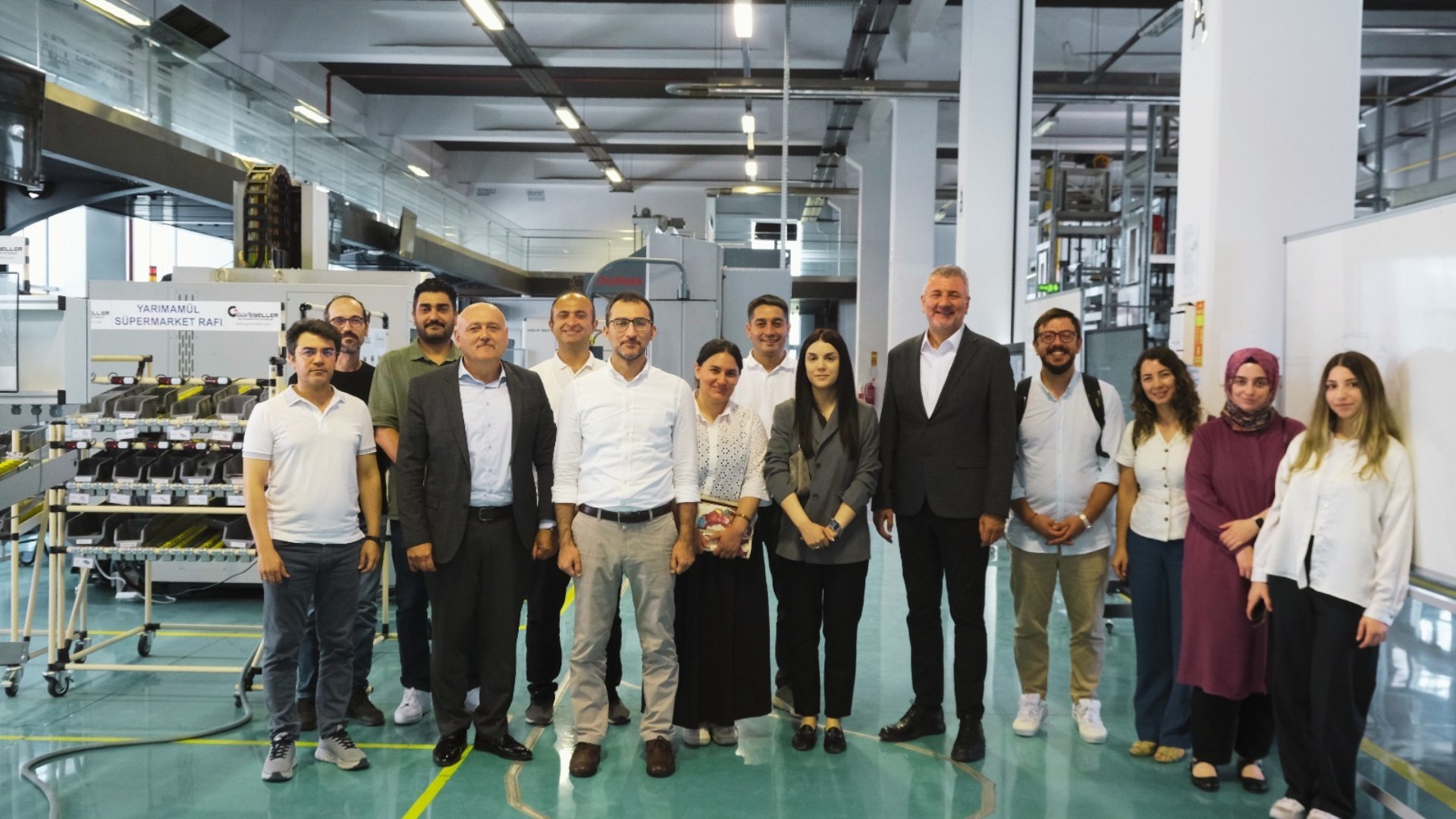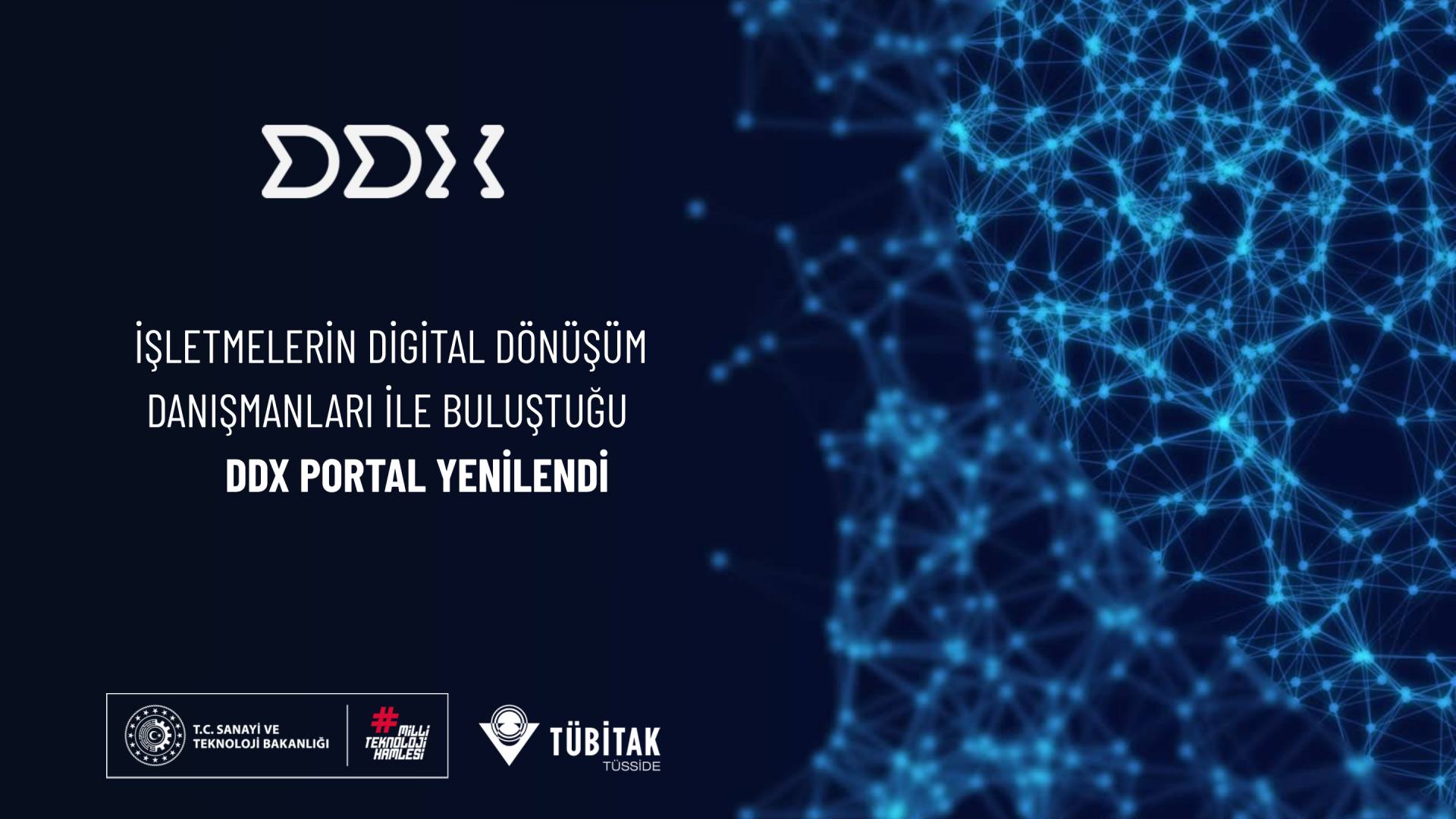President Recep Tayyip ERDOĞAN attended the signing ceremony of the Türksat 6A Communication Satellite Project, Turkey's first domestic communication satellite, at the Turkish Industrial Management and Management Institute (TÜSSİDE) located in the Gebze TÜBİTAK campus. The project was signed by Türksat General Manager Ensar GÜL, Undersecretary of the Ministry of Transport, Maritime Affairs and Communications Feridun BİLGİN and TÜBİTAK President Yücel ALTUNBAŞAK.
Türksat 6A Communication Satellite, whose project duration is 5 years, will be completed in 2019 and is planned to be sent into space in 2020. The project aims to bring satellite design and production technologies to our country by developing the communication satellites that Turkey has been procuring abroad to the maximum extent with domestic means and to keep national resources within the country. With the project, Türksat A.Ş. Military satellite communication needs, which are strategically important and are met by Turkey, will be produced with domestic resources.
“Reflections of the Growing, Strengthening and Developing New Turkey”
Before the ceremony, Erdoğan stated that they felt great pride in opening the TÜPRAŞ Conversion Facility, which was completed at a cost of 3 billion dollars and is the largest single industrial investment ever made in Turkey with its size, and that they were proud of this project, and said: "The new Turkey that is growing, strengthening and developing." "We all observe together the reflections and scenes of pride of ," he said.
Erdoğan reminded that they received the TÜRKSAT 4A Satellite, the construction of which was completed in Japan in January this year, and that the satellite was successfully launched from the Baikonur Cosmodrome in Kazakhstan on February 15. Stating that Göktürk 2, the first reconnaissance satellite whose software and 80 percent of its hardware were domestic, was sent into space from China in 2012, Erdoğan emphasized that RASAT, the first earth observation satellite designed and produced in Turkey, was placed into orbit in 2011.
Pointing out that the TÜRKSAT 6A satellite, which was launched, is a much different and more advanced project than these satellites, Erdoğan said, “We are proud of realizing 4 important projects during our period of power. The subsystems, ground station and software to be used in our TÜRKSAT 6A satellite, which will undertake both commercial and military missions, will be produced entirely with national resources. The subsystems to be developed within the scope of this project will also form the infrastructure of the national communication satellites to be produced later. Therefore, the project is extremely important to us not only with the service it will provide but also with its strategic nature. These are signs of a leap forward, a sign of self-confidence. I wholeheartedly believe that Turkey will be able to send its own satellites into space in the future and will have such opportunities. Türkiye is making dreams come true today. "Hopefully, he will be able to achieve things that cannot even be dreamed of in the near future," he said.
“The future will be much different for our Turkey and our nation.”
Stating that they are struggling to improve research and development activities and pave the way to knowledge, Erdoğan said, “With the investments we have made in education, especially vocational training, science, research and R&D, Turkey has now begun to move forward in a very different track. We took steps that could not be taken or postponed for many years, especially in these Science and Technology Supreme Council meetings, which we hold every 6 months under the coordination of TÜBİTAK. Where were we, where have we come, and where will we go in all this work? We always planned these, and when we arrived at a period when the state almost did not allocate money for R&D studies, we are now approaching 1 percent of the budget. Actually, our target is 2 percent. Now 2 percent is not enough anymore, maybe this will need to be increased to 3 percent. If we achieve this, I believe that the future will be much different for our Turkey and our nation, with the private sector also taking a role in R&D investments - and the private sector has now started to take a role in this field. "By taking many issues, especially defense industry projects, under our personal protection, we have achieved rapid progress," he said.
Emphasizing that Turkey has come a long way in the field of science and technology, President Erdoğan continued his words as follows: “When we look back, we see that there is a really important difference between where we started and where we have reached. For example, in 2002, there were only 2 technoparks in our country, which may surprise you. Today, we have 59 technoparks, 41 of which are active. This is very important as it shows where we have come from. In these technoparks, our 3 thousand companies, with their 30 thousand personnel, research, produce and export 1 billion 700 million dollars annually. The informatics valley that we are establishing right next to us means that a new phase will hopefully begin in Turkey. This is also very important. It is here in Turkey that we are creating a truly great pride, an IT valley that will be pointed out in the world. The enormous increases in trademark and patent applications indicate that our country is moving in the right direction in this regard. "I hope we are transforming TÜBİTAK into its primary function, that is, into an innovative and guiding institution in the field of science and technology."
Stating that the institutes and research centers operating within TÜBİTAK have made themselves proud by achieving admirable successes, Erdoğan stated that the private sector has also reached an important level in this regard.
Support for Private Sector R&D Studies
Underlining that the support provided to the private sector's research and development activities through TÜBİTAK alone in the last 12 years has reached 4.5 billion lira, Erdoğan said, “I would like to emphasize one issue here. While serving as prime minister for 12 years, we made great efforts and sensitivity to increase science, technology, and especially research and development studies in Turkey. "We restructured TÜBİTAK with such a goal and such sensitivity, we encouraged it and supported it very strongly," he said.
President Erdoğan stated that they saw that, despite all their good intentions and sincere efforts, some people who settled into TÜBİTAK began to rot the institution from within and use it for different purposes, and said: “Think about it, you call it science, you call research and development, but someone infiltrates the institution like a cancer cell. He is struggling to refute your sincere efforts. Such a treason network is established within TÜBİTAK that it uses its time and knowledge not for its homeland, nation, or flag, but for treason. They are doing nefarious activities there, not in science and technology, but in order to, for example, tap the encrypted phones of high-ranking government officials. If the people who gave me this phone are listening to my phone, the encrypted phone that was given to me, I can never show them a different approach. Unfortunately, the biggest evidence of how we have been stabbed in the back are these people at TÜBİTAK. When they shoot a person from the front, you say 'He shot him in a manly manner', but when they shoot him from behind, it is a treacherous, despicable shot. "We need to see this," he said.
President Recep Tayyip Erdoğan said, “Traitors who infiltrated TÜBİTAK were unfortunately protected by Assassins who infiltrated the judiciary. Thank God, TÜBİTAK is now getting rid of them. I'm not saying it's completely clean. "I have hope that it has been or will be fully cleared," he said.
Türkiye That Can Build Its Own Satellite
TÜRKSAT AŞ General Manager Ensar Gül gave a briefing about TÜRKSAT 6A before the signing ceremony. He said that the cost of TÜRKSAT 6A satellite is approximately 550 million liras, 150 million liras of which will be covered by TÜBİTAK and the remaining part will be covered by the Ministry of Transport, Maritime Affairs and Communications.
Gül pointed out that if the satellite was purchased, it would be cheaper, but the costs were a little higher because it involved R&D, and said, “But ultimately, we will have obtained our own satellite platform and we will use it in future satellites. "We pay our extra cost for this," he said.
Emphasizing that when TÜRKSAT 6A is launched into space, Turkey will be among the 10 countries that can build its own communication satellite, Gül said that not only making the satellite but also launching it is important.
Turkish Space Agency is Being Established
Ensar Gül noted that the "Turkish Space Agency Law" draft was prepared by the Ministry of Transport, Maritime Affairs and Communications, and that this space agency will coordinate and manage Turkey's space projects.
President Recep Tayyip Erdoğan made inspections at TÜBİTAK Marmara Research Center after the ceremony.

